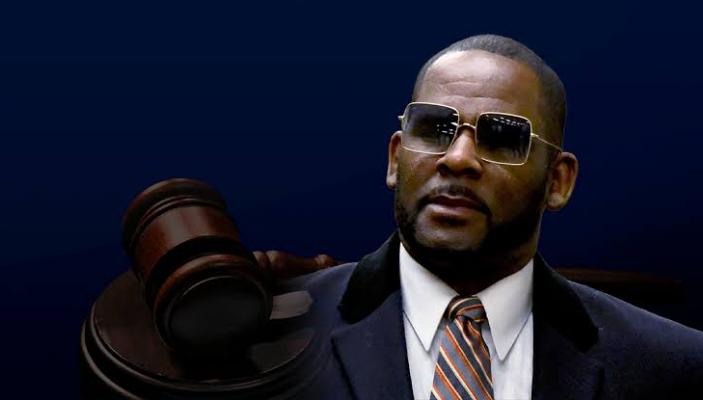R. Kelly, once hailed as the “King of R&B,” spent decades shaping the modern rhythm and blues landscape. Known for chart-topping hits like I Believe I Can Fly and Ignition (Remix), he was a dominant force in 1990s and 2000s music culture. But over time, his legacy has been overshadowed by an ongoing legal saga that now defines much of the public discourse around him.
This article aims to provide a well-rounded, people-first look at R. Kelly’s life—from musical acclaim to criminal conviction—focusing on facts, cultural impact, and the broader social discussions his case has raised.
R. Kelly’s Career Highlights and Cultural Influence
From Humble Beginnings to Global Fame
Born Robert Sylvester Kelly in Chicago, 1967, R. Kelly faced hardship early. Raised in poverty by a single mother, his path to stardom began in church choirs and on city streets. His natural vocal ability and songwriting quickly caught attention, leading to his first major record deal in the early 1990s.
His 1993 solo debut 12 Play brought hits like Bump n’ Grind, earning him platinum records and critical acclaim. He soon became a fixture in R&B and pop culture, working with artists like Michael Jackson, Celine Dion, and Jay-Z.
Shaping Sound and Storytelling in R&B
Kelly’s influence went beyond radio success. He helped shape the identity of ‘90s R&B with his signature blend of gospel-influenced vocals and sensual themes. Albums like R. and Chocolate Factory defined a generation’s emotional soundtrack.
However, alongside this musical talent was an emerging pattern of concern that many overlooked or dismissed.
Early Allegations and Industry Silence
Warning Signs and Settlements
By the late 1990s, rumors about Kelly’s behavior had begun surfacing. Journalists and insiders raised questions about inappropriate relationships with underage girls. His illegal 1994 marriage to then-15-year-old singer Aaliyah was an early public controversy—later annulled, but never truly forgotten.
Multiple lawsuits and private settlements followed over the years, though he continued releasing music and touring. Critics often point to the music industry’s role in protecting his career rather than confronting the allegations.
Turning Point: Investigations and Charges
The 2008 Trial and Acquittal
In 2002, R. Kelly was indicted on 21 counts of child pornography related to a widely circulated videotape allegedly showing him with an underage girl. The case, delayed for years, finally went to trial in 2008. Kelly was acquitted, largely due to the victim’s refusal to testify and questions around video authenticity.
Though legally cleared, public skepticism lingered. Still, his fan base remained strong, and he continued releasing music.
Renewed Momentum Through Journalism and Activism
The #MeToo movement helped revive focus on systemic abuse and celebrity accountability. Investigative journalism and survivor advocacy brought new scrutiny. Jim DeRogatis, a Chicago journalist who had followed the story for years, published in-depth investigations that helped push the narrative forward.
The turning point came with the 2019 Surviving R. Kelly documentary series, which featured harrowing accounts from multiple women and reignited public demand for justice.
Conviction and Sentencing
Federal Charges and Trial Outcomes
In 2021, R. Kelly was found guilty of racketeering and sex trafficking by a federal jury in Brooklyn. The prosecution painted a picture of a decades-long pattern of abuse enabled by his entourage.
In 2022, he was sentenced to 30 years in prison. Additional charges in other states, including Illinois and Minnesota, followed.
Reactions and Public Reflection
Reactions to the verdict were mixed. Survivors and advocates saw it as a long-overdue validation. Others expressed sadness that it had taken so long for the justice system to act. His fans remain divided—some still defend him, while others renounce his music entirely.
Cultural Questions and Lasting Conversations
Separating the Artist from the Art
Can someone’s artistic contributions be appreciated separately from their personal actions? This question became central in conversations around R. Kelly.
Some streaming platforms removed his music from curated playlists, while others left it available but added disclaimers. Radio stations debated whether to play his songs, and fans argued online about ethics, accountability, and art.
Broader Impact on Industry Accountability
Kelly’s case has also pressured the entertainment industry to rethink how it protects—or ignores—abusive behavior when a star is profitable. Record labels, tour managers, and PR teams were criticized for enabling or overlooking harmful conduct.
The conversations sparked by this case have inspired advocacy for stronger protections and clearer accountability in music and beyond.
Conclusion: Beyond the Headlines
The story of R. Kelly is not just about a musician’s rise and fall. It’s about the people affected, the systemic failures that allowed abuse to continue unchecked, and the cultural reckoning now unfolding across entertainment and society.
While his music may remain a part of pop history, the human cost of his actions has rightfully become the center of attention. The case invites ongoing reflection about how fame, power, and silence intersect—and how society chooses to respond.

